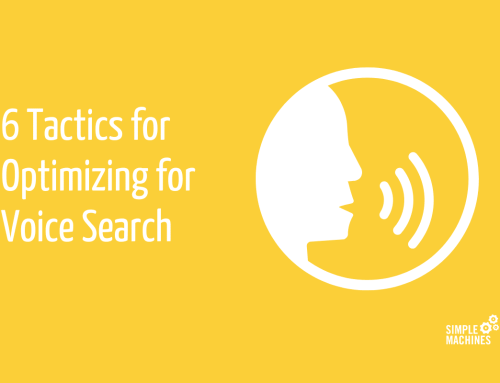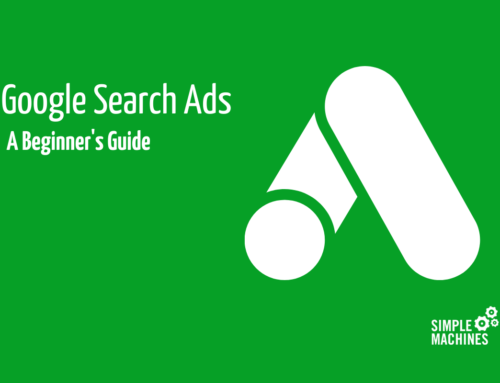You’ve just signed a contract with a new marketing agency. You’re buzzing with excitement about what the future holds for your company. Think of the campaigns! The leads! The sales!
And it’s not just you who is excited – your marketing agency can’t wait to get started, either. Marketers love getting to dive into new projects where they get to immerse themselves in the world of their client and develop strategies to help them achieve their goals.
Unfortunately, misunderstandings and misaligned priorities sometimes get in the way of making incredible marketing happen. Though there are several ways that a marketing agency can make or break this relationship, today we’re focusing on ways that clients can help ensure a great relationship. If you want to make sure that you get the most out of your time working with a marketing agency, remember that a successful marketing agency relationship rewards frequent communication and trust.
How to have a successful relationship with your marketing agency
I can’t emphasize enough that the success of the relationship depends as much on you (the client) as it does your marketing agency. Both parties must commit in order for the relationship to be successful.
There are two main reasons that contribute to a client-agency relationship that’s less than satisfactory for either party: a false belief that the marketing agency can work completely independently and a lack of trust.
Marketing agencies rely on client feedback to develop successful campaigns
This one is often an issue for organizations that hire an agency because they lack the internal resources to spearhead marketing. While handing off marketing activities to an agency certainly frees up a significant amount of resources within your organization, it does not mean that you don’t have to work collaboratively with your agency.
Now, we don’t mean that we expect you to write copy or come up with campaign ideas. That’s the job of the agency. What your agency does need from you includes:
- Timely feedback on material they create so that they can revise until both parties are happy with the final product
- Open lines of communication with a reliable internal employee who can answer the agency’s questions
- Insight into the quality and quantity of leads and sales
- Insight into organizational changes that may impact marketing
What your agency needs is a person to shine a light on the right track for the agency to take. Your input and information ensures that the time you are paying for is spent in a productive manner, instead of spent developing copy and creative that is incomplete or incorrect, and thus, unusable.
We’ve found that some of our most successful relationships with clients occur when there is one point-person that we primarily work with at an organization. When one person acts as the spokesperson for their organization, we are able to streamline our processes and develop a relationship that allows us to learn over time what kinds of requests and feedback to anticipate. It also makes accountability crystal clear, as there is no question about who should be responsible on the client side for providing feedback and approval.
You must trust your marketing agency to develop campaigns you like
It might sound odd: why would an agency be hired if the client doesn’t trust them?
Maybe the person who hired the agency trusts their work, but their day-to-day point-of-contact doesn’t. Maybe it’s the first time they’ve worked with an agency and they’re nervous about giving up some control to an outside organization. Maybe they just have trust issues.
Whatever the case may be, it’s crucial that trust be developed so that there is no slow down or dilution of the quality of work being created by the agency.
A lack of trust most often shows itself through excessive revisions. Any reputable agency will plan for a number of revisions on every project based on client feedback; however, there may become a point when the revisions aren’t fixing or improving the marketing project, and instead, slow down the creative process.
This lack of trust needs to be confronted by both parties.
For agencies, this means developing processes to get sign-off on projects, creative and procedures prior to beginning work. This may play out like this:
A client and agency decide they want to create a billboard, with a specific goal of having it increase brand awareness. If the client agrees that this channel and goal are worth exploring, they can submit a creative brief to their agency. A creative brief will include the client’s notes about what the project needs to achieve in order for them to deem it a success, the most important thing the billboard needs to do or say, and the priority of the project. This information will allow for the agency to move forward with the project in a manner that’s in line with client expectations. This will help the copywriting and creative team create the billboard quicker while reducing the number of revisions that a client will request (since they’ve already set the requirements for the billboard).
Click here to view a larger version of our Creative Brief
For clients, this means letting your agency know your expectations and limitations upfront during the creative brief process. Think of the creative brief process as a way for you to dictate what you envision (or don’t want) for your campaign. By letting your agency know upfront that you don’t want to use a photo of a middle aged man or the word “revolutionary” in your creative, for example, you’ll be able to ensure that your agency steers away from the things that would make you consider the piece unusable. Remember that creative briefs are meant to be just that: brief. Keep your vision and restrictions limited to the most important items; otherwise, both parties will be so bogged down in minutiae the billboard deadline may be missed.
We’re all working toward the same goal
With timely and open communication and clear processes in place, you and your agency should be able to successfully develop crowd-pleasing creative and meet deadlines. At the end of the day, the most important thing to remember about your relationship with your marketing agency is that you’re both working toward the same goal: the success of your business. By sharing your input while still trusting the ultimate output of your agency, you’ll find you and your agency can accomplish great things.












